Find Help
More Items From Ergsy search
-

Neck Exercises
Relevance: 100%
-

Neck Exercises
Relevance: 99%
-
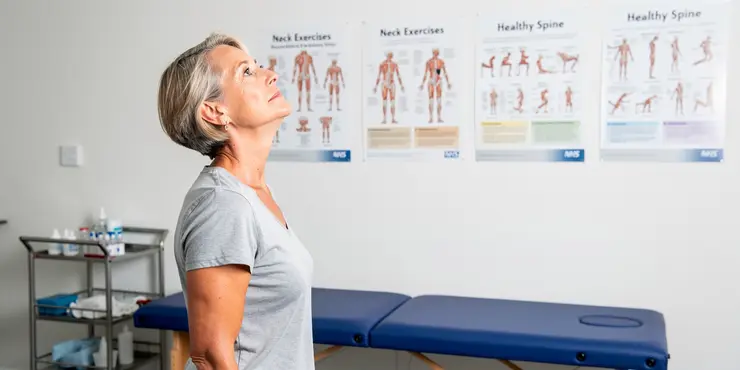
Neck Care Exercises
Relevance: 94%
-

Advice on neck pain and whiplash
Relevance: 65%
-

Head and Neck Cancer Diagnosis
Relevance: 56%
-
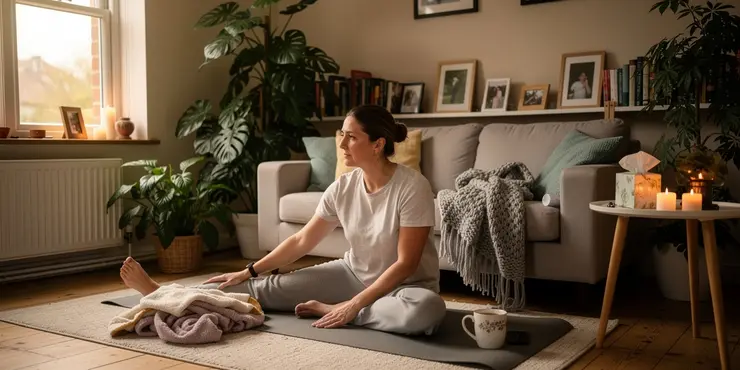
Is it safe to exercise with a cold?
Relevance: 53%
-

Can exercise worsen whiplash symptoms?
Relevance: 53%
-

Radiotherapy to the Head and Neck: A Guide for patients and their carers
Relevance: 49%
-

Royal Berkshire NHS Foundation Trust: Radiotherapy for head and neck cancers
Relevance: 45%
-

Facial exercise programme
Relevance: 44%
-
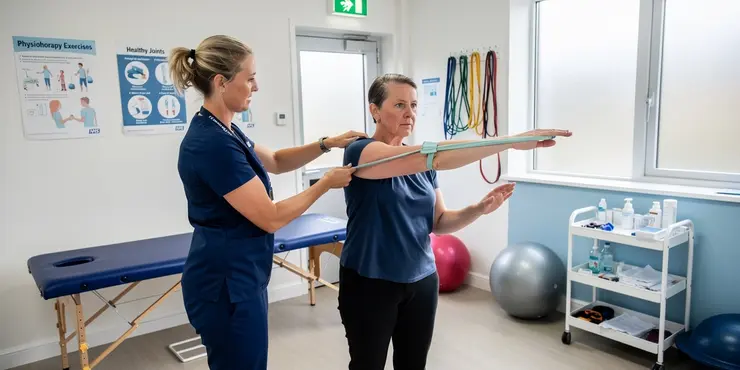
Shoulder Exercises 1
Relevance: 36%
-

Plantar Fascia Loading Exercise (High Load Exercise)
Relevance: 35%
-
What are mixed exercises?
Relevance: 34%
-
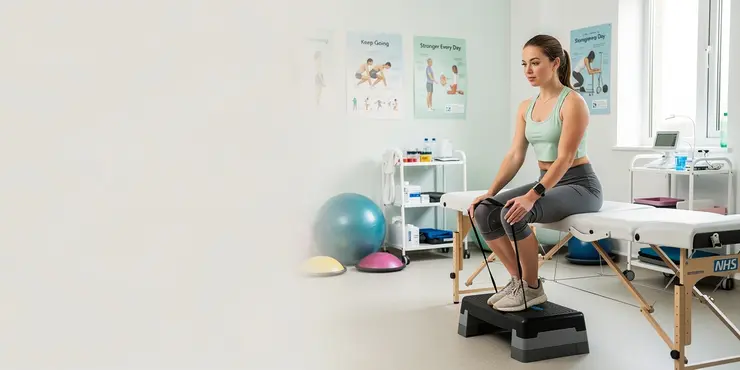
ACL pre-operation exercises
Relevance: 34%
-

Knee Care Exercises
Relevance: 34%
-
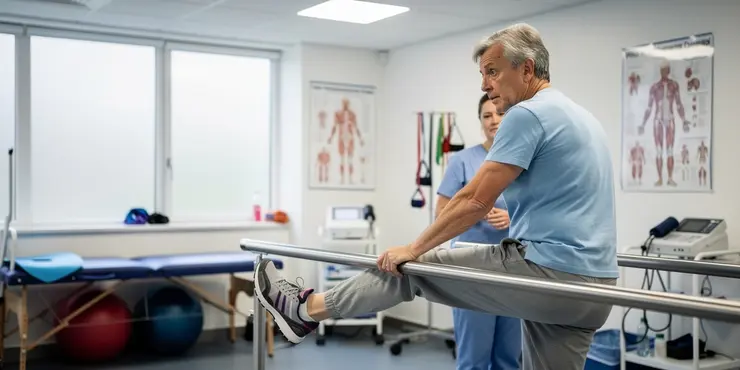
Exercise in patients with a neuropathy
Relevance: 34%
-
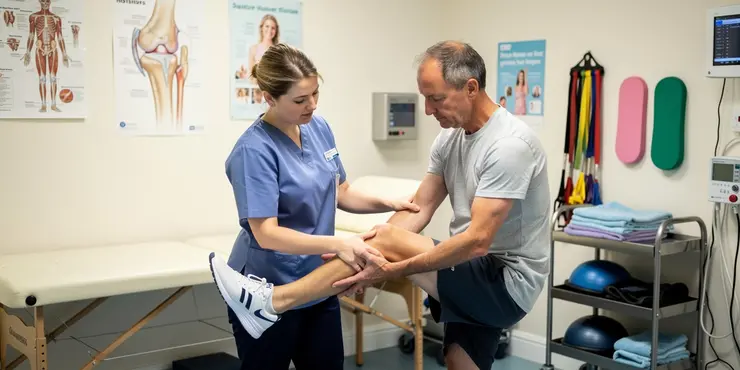
ACL exercises post-operation
Relevance: 33%
-

Joint School - Hip Exercises
Relevance: 32%
-
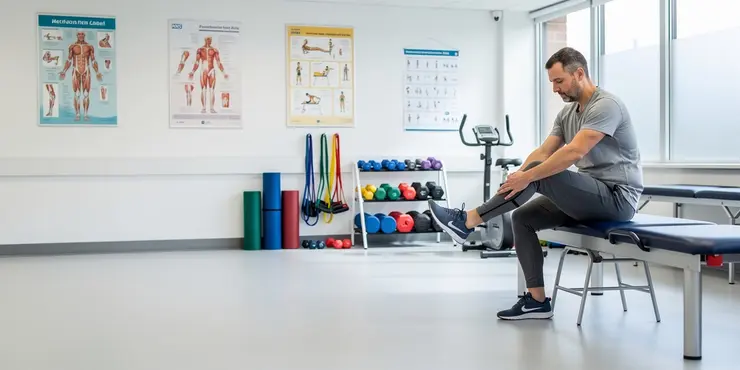
Joint School - Knee Exercises
Relevance: 32%
-

Will I be able to engage in physical exercise?
Relevance: 32%
-
Do mixed exercises build endurance?
Relevance: 32%
-
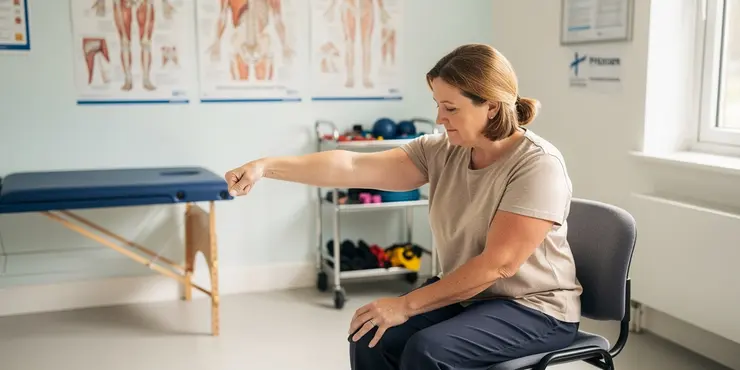
Frozen shoulder Pendular Exercises
Relevance: 32%
-
Why are mixed exercises better ?
Relevance: 32%
-
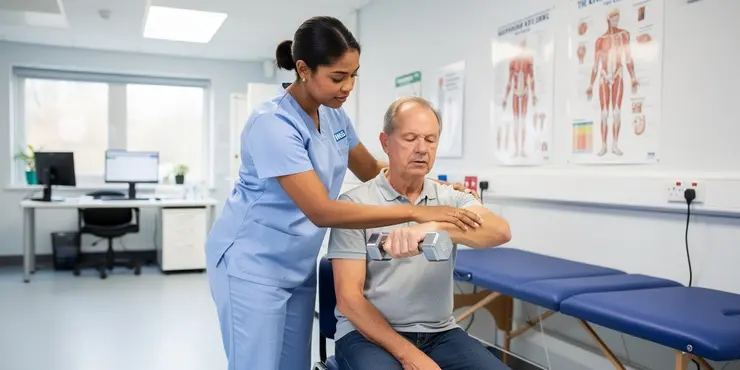
Elbow Eccentric Strengthening Exercise
Relevance: 32%
-

Exercise Routines for Busy Parents
Relevance: 31%
-
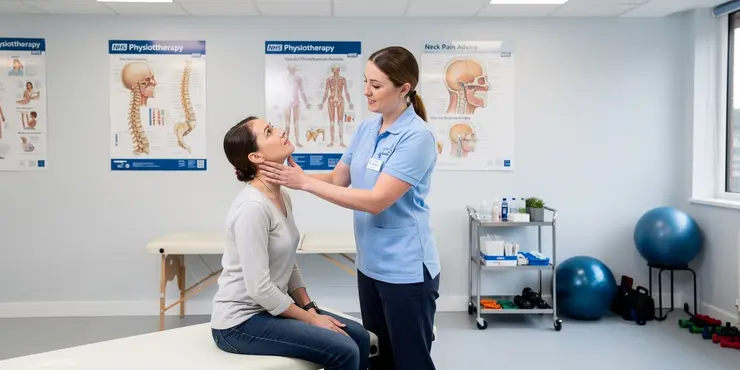
What is the best way to recover from whiplash?
Relevance: 31%
-
Is it suitable for beginners to try mixed exercises?
Relevance: 31%
-
Are mixed exercises beneficial for weight loss?
Relevance: 31%
-
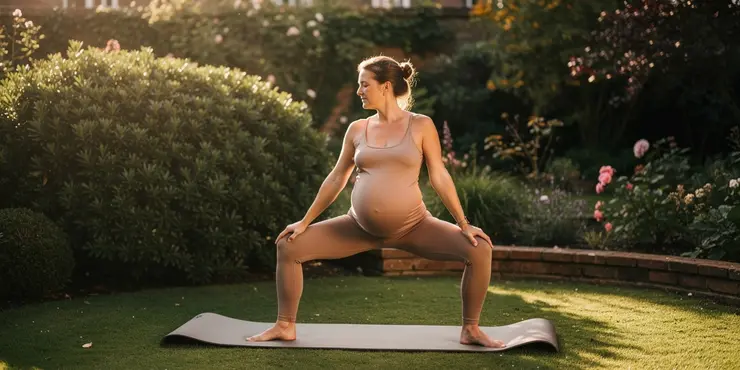
Can exercises help with labor preparation?
Relevance: 31%
-
Will mixed exercises improve my athletic performance?
Relevance: 31%
-
Can mixed exercises be done at home?
Relevance: 31%
-

Are there any exercises involved in air physiotherapy?
Relevance: 31%
-
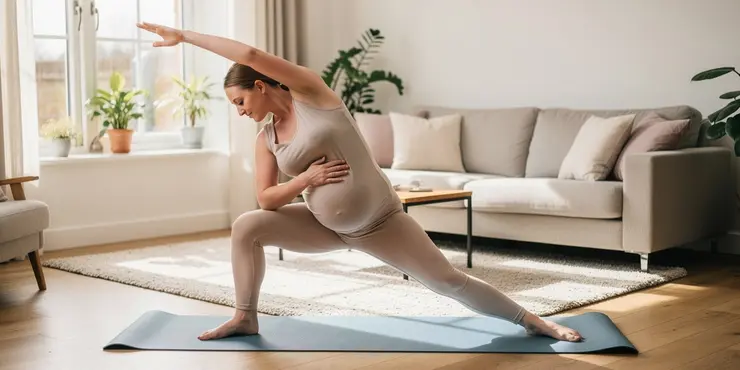
How does exercise benefit pregnancy?
Relevance: 31%
-
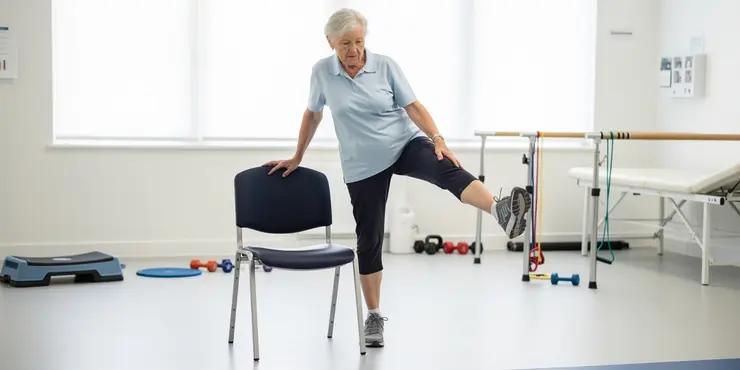
Falls Prevention - strength and balance exercises
Relevance: 31%
-
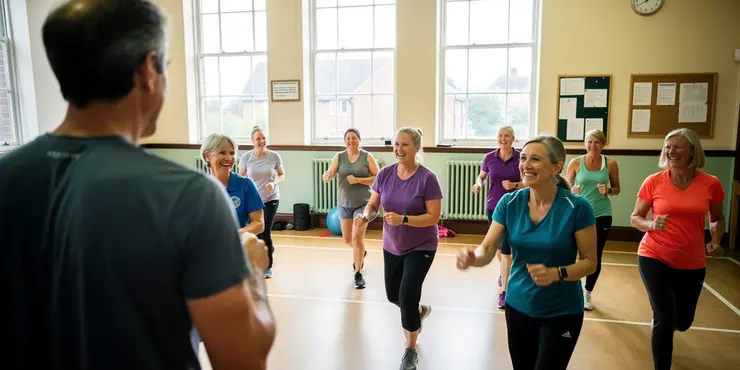
Can exercise influence cortisol levels?
Relevance: 31%
-
Is it necessary to have equipment for mixed exercises?
Relevance: 31%
-

Can I do abdominal exercises during pregnancy?
Relevance: 30%
-

Can I do high-impact exercises while pregnant?
Relevance: 30%
-
Do mixed exercises help in preventing injuries?
Relevance: 30%
-
How do mixed exercises enhance flexibility?
Relevance: 30%
Effective Neck Exercises: Maintaining Flexibility and Reducing Pain
Introduction to Neck Exercises
Neck exercises play a crucial role in maintaining the flexibility and strength of the cervical spine. Especially for individuals in the United Kingdom, who often have sedentary lifestyles, these exercises help alleviate neck pain and reduce the risk of developing chronic conditions. Regular neck exercises can improve posture, enhance blood circulation, and relieve stress and muscle tension.Importance of Neck Exercises
Neck pain is a common complaint, often caused by poor posture, prolonged use of electronic devices, or stress. Incorporating simple neck exercises into your daily routine can prevent discomfort and promote overall well-being. Additionally, these exercises can help those recovering from neck injuries, such as whiplash, by gradually restoring mobility and strength.Simple and Effective Neck Exercises
Here are some easy and effective neck exercises that can be performed at home or work: Neck Stretches 1. Side Neck Stretch: Sit or stand upright, gently tilt your head towards one shoulder until you feel a stretch on the opposite side of your neck. Hold for 15-30 seconds, and then switch sides. 2. Forward and Backward Bends: Tilt your head forward, bringing your chin towards your chest, and hold for 15-30 seconds. Then, tilt your head backward, looking up towards the ceiling, and hold for the same duration. Neck Rotation 1. Neck Circles: Slowly rotate your head in a circular motion, first clockwise and then counterclockwise. Perform this exercise for 30 seconds in each direction. 2. Seated Neck Rotation: Sit comfortably and turn your head to the right until you feel a gentle stretch. Hold for 15-30 seconds, and then turn to the left. Repeat several times. Chin Tucks 1. Basic Chin Tuck: Sit or stand with good posture, tuck your chin in towards your neck as if you’re trying to create a double chin. Hold for 5 seconds and repeat 10 times. This exercise helps in improving posture and strengthening the muscles at the front of your neck.Incorporating Neck Exercises into Daily Routine
Integrating these exercises into your daily routine can be simple. Take short breaks during work hours to perform these stretches and rotations. While watching TV or reading, practice chin tucks to maintain good posture. Make it a habit to perform at least a few minutes of neck exercises each day to experience long-term benefits.Conclusion
Maintaining neck health through regular exercises is essential for those living in the UK, given the common occurrence of neck pain related to lifestyle factors. By incorporating these simple and effective exercises into your daily routine, you can enjoy greater flexibility, reduced pain, and overall neck health. Always consult with a healthcare professional if you experience severe neck pain or if you are unsure about performing any exercises.Effective Neck Exercises: Keeping Your Neck Flexible and Pain-Free
What Are Neck Exercises?
Neck exercises help keep your neck strong and flexible. This is very important for people in the UK who often sit a lot. These exercises can help stop neck pain and stop it from getting worse. Doing neck exercises regularly can make your posture better, help blood move around, and take away stress and muscle tightness.Why Are Neck Exercises Important?
Many people have neck pain. It can happen because of bad posture, using phones or computers too much, or feeling stressed. Doing simple neck exercises every day can help you feel better and stay healthy. These exercises are also good if you hurt your neck, like with whiplash, because they help your neck get better slowly.Easy Neck Exercises You Can Do
Here are some simple neck exercises you can do at home or at work: Neck Stretches 1. Side Neck Stretch: Sit or stand up straight. Gently tilt your head to one side until you feel a stretch on the other side of your neck. Hold for 15-30 seconds, then switch sides. 2. Forward and Backward Bends: Tilt your head forward so your chin moves to your chest. Hold for 15-30 seconds. Then tilt your head back and look up at the ceiling. Hold for the same time. Neck Rotation 1. Neck Circles: Slowly move your head in a circle. Do it clockwise first, then go the other way. Do this for 30 seconds each way. 2. Seated Neck Rotation: Sit comfortably. Turn your head to the right until you feel a gentle stretch. Hold for 15-30 seconds, then turn to the left. Do this a few times. Chin Tucks 1. Basic Chin Tuck: Sit or stand straight. Tuck your chin in like you’re trying to make a double chin. Hold for 5 seconds, then do it 10 times. This helps improve posture and strengthen your neck muscles.Add Neck Exercises to Your Daily Routine
You can easily fit these exercises into your day. Take short breaks at work to do these stretches. When watching TV or reading, practice chin tucks to keep good posture. Try to do some neck exercises every day to keep your neck healthy and pain-free.Conclusion
Doing neck exercises regularly is important for people in the UK. Many people have neck pain because of how they live. By doing these easy exercises every day, you can feel more flexible, have less pain, and keep your neck healthy. Always talk to a healthcare professional if you have bad neck pain or if you’re not sure about doing any exercises.Frequently Asked Questions
What are the benefits of neck exercises?
Neck exercises help improve flexibility, reduce pain, increase strength, and promote better posture.
How often should I do neck exercises?
It is generally recommended to do neck exercises at least 3-4 times a week, or as advised by a healthcare professional.
Can neck exercises relieve neck pain?
Yes, neck exercises can help alleviate neck pain by strengthening muscles and improving flexibility and range of motion.
Are neck exercises safe for everyone?
Most people can safely perform neck exercises, but it’s always best to consult with a healthcare professional if you have any underlying conditions or severe pain.
What are some common neck exercises?
Common neck exercises include neck tilts, neck stretches, neck rotations, and chin tucks.
Do I need any equipment for neck exercises?
No special equipment is needed for basic neck exercises; they can usually be performed with just your body weight.
Can I do neck exercises at my desk?
Yes, many neck exercises can be performed while sitting at your desk, which is useful for those who work long hours in front of a computer.
How long should a neck exercise session last?
A typical neck exercise session can last anywhere from 5 to 15 minutes, depending on the number and complexity of exercises performed.
Can neck exercises improve my posture?
Yes, regular neck exercises can help improve posture by strengthening the muscles that support the neck and shoulders.
Are neck exercises effective for tension headaches?
Neck exercises can help reduce tension in the neck and shoulders, which may alleviate some types of tension headaches.
Should I warm up before doing neck exercises?
It is a good idea to do a light warm-up, such as gentle neck movements or shoulder rolls, before starting neck exercises to prevent injury.
Can neck exercises help with neck stiffness?
Yes, regular neck exercises can help reduce stiffness by increasing the flexibility and range of motion of the neck.
Is there a best time of day to do neck exercises?
You can do neck exercises at any time of day; however, some people find them particularly useful in the morning or after long periods of inactivity.
What should I do if neck exercises cause pain?
If you experience pain while doing neck exercises, stop immediately and consult a healthcare professional to ensure you're performing the exercises correctly and to rule out any underlying issues.
Can neck exercises help with conditions like cervical spondylosis?
Neck exercises can be beneficial for managing conditions like cervical spondylosis, but it is essential to follow a programme designed or approved by a healthcare professional.
Why are neck exercises good for you?
Doing neck exercises can help your neck move better, hurt less, get stronger, and help you stand up straight.
How many times should I do neck exercises?
It's good to do neck exercises every day or a few times a week. This helps keep your neck strong and healthy.
Here are some tips to help you:
- Ask for help: A family member, friend, or teacher can help you remember to do your exercises.
- Use reminders: Set an alarm or write it in a calendar so you don't forget.
- Keep it simple: Start with easy exercises and do them at a time that fits your day.
It is a good idea to do neck exercises 3 to 4 times a week. If a doctor tells you something different, follow the doctor's advice.
Can exercises help with neck pain?
Do exercises make your neck feel better? Let’s find out how moving can help your neck feel nice and relaxed. Remember, you can ask someone to help you with the exercises!
Yes, doing exercises for your neck can help make neck pain feel better. These exercises make your neck muscles stronger and help you move your neck more easily.
Is it safe for everyone to do neck exercises?
Most people can do neck exercises safely. But it’s a good idea to talk to a doctor if you have health problems or big pain.
What are some neck exercises?
Here are some exercises that help your neck:
- Tilt your neck: Move your head to the side.
- Stretch your neck: Reach your head up or down.
- Rotate your neck: Turn your head left and right.
- Tuck your chin: Bring your chin down like you are nodding.
What Do I Need for Neck Exercises?
You don't need special tools for neck exercises. You can use a towel. A pillow can also help. Doing exercises in a safe place is good.
Ask someone to help you if needed. You can use videos online to guide you.
Always be gentle with your neck!
You do not need any special equipment to do simple neck exercises. You can use just your body to do them.
Can I do neck exercises while sitting at my desk?
Yes, you can do many neck exercises while you sit at your desk. This helps if you work for a long time on the computer.
How long should you do neck exercises?
Neck exercises are good for you. They help your neck feel better and get stronger.
You should do neck exercises for about 10 to 15 minutes each time.
Remember to go slow and be careful. If anything hurts, stop and rest.
You can use a timer to help you keep track of time. Some people like to listen to music or count to keep exercises fun.
Ask a friend or family member to help if you need it.
A neck exercise session usually takes 5 to 15 minutes. How long it takes depends on how many exercises you do and how hard they are.
Can neck exercises help me stand up straight?
Yes, doing neck exercises can help you stand up straight. These exercises make the muscles in your neck and shoulders strong.
Do neck exercises help with headaches?
Some people get headaches because their neck muscles are tight.
Stretching or moving the neck can help these headaches feel better.
You can try simple neck exercises to see if they help you.
If headaches don't go away, talk to a doctor for more advice.
Doing exercises for your neck can help your neck and shoulders feel less tight. This can also help stop some headaches that come from feeling tense.
Is it good to warm up before neck exercises?
Yes, it is good to warm up your neck before you start exercises.
This helps get your muscles ready and can stop you from getting hurt.
You can do gentle head turns and nods to warm up.
If you need help, you can ask a trainer or use a video to guide you.
Before you exercise your neck, it's good to do a warm-up. You can move your neck gently or roll your shoulders. This helps keep you safe.
Do neck exercises help if your neck feels stiff?
If your neck feels tight or hard to move, doing some neck exercises might help. They can make your neck feel better and move more easily. You can try simple movements like turning your head side to side or gently tilting it up and down. Remember to do this slowly and carefully.
To help you, you can ask an adult or a physiotherapist to show you how to do these exercises. They will make sure you do them the right way. You can also use pictures or videos to guide you.
Yes, doing neck exercises often can help your neck feel less stiff. These exercises help your neck move better and feel more flexible.
What is the best time to do neck exercises?
Do you want to know when to do neck exercises? The best time is when you feel ready and relaxed.
Here are some tips:
- Try doing them in the morning to start your day well.
- Or, do them in the evening to help you relax before bed.
- Listen to your body. Do neck exercises when you have time and feel good.
Tools that can help:
- Set a reminder on your phone.
- Ask a friend or family member to join you.
- Use a soft mat or cushion if that feels nice.
You can do neck exercises any time during the day. Some people like doing them in the morning or after sitting still for a long time.
What should I do if neck exercises hurt?
If your neck exercises make your neck hurt, stop doing them. It's important to listen to your body. Here are some tips:
- Tell a grown-up or someone you trust about the pain.
- Rest your neck. Don’t do exercises that hurt.
- Use a warm cloth or a cold pack on your neck to feel better.
- Try gentle stretches. Move slowly and carefully.
- Ask a doctor or physiotherapist for help. They can show you safe exercises.
- Try to do exercises while sitting down with support.
Remember, it’s okay to ask for help if you need it!
If your neck hurts while you do exercises, stop right away. Talk to a doctor or a nurse. They can make sure you are doing the exercises the right way. They can also check if there is another reason for the pain.
Can neck exercises help with neck problems?
Do neck exercises help if you have neck problems called cervical spondylosis?
Cervical spondylosis is when your neck hurts because the bones and joints in your neck are getting old.
Here is how you can help your neck feel better:
- Try simple neck exercises. Move your head slowly from side to side and up and down. This can keep your neck strong and flexible.
- Be gentle when you exercise. Don’t push too hard, or you might hurt your neck.
- If your neck hurts a lot, talk to a doctor. They can tell you the best exercises and ways to help.
- You can also use a warm cloth or pad to relax your neck.
These exercises might help, but always check with an adult or a doctor before you start.
Doing exercises for your neck can help if you have a problem like cervical spondylosis. It is important to do exercises that a doctor or healthcare worker says are okay.
Useful Links
This website offers general information and is not a substitute for professional advice.
Always seek guidance from qualified professionals.
If you have any medical concerns or need urgent help, contact a healthcare professional or emergency services immediately.
Some of this content was generated with AI assistance. We’ve done our best to keep it accurate, helpful, and human-friendly.
- Ergsy carfully checks the information in the videos we provide here.
- Videos shown by Youtube after a video has completed, have NOT been reviewed by ERGSY.
- To view, click the arrow in centre of video.
- Most of the videos you find here will have subtitles and/or closed captions available.
- You may need to turn these on, and choose your preferred language.
- Go to the video you'd like to watch.
- If closed captions (CC) are available, settings will be visible on the bottom right of the video player.
- To turn on Captions, click settings .
- To turn off Captions, click settings again.
More Items From Ergsy search
-

Neck Exercises
Relevance: 100%
-

Neck Exercises
Relevance: 99%
-

Neck Care Exercises
Relevance: 94%
-

Advice on neck pain and whiplash
Relevance: 65%
-

Head and Neck Cancer Diagnosis
Relevance: 56%
-

Is it safe to exercise with a cold?
Relevance: 53%
-

Can exercise worsen whiplash symptoms?
Relevance: 53%
-

Radiotherapy to the Head and Neck: A Guide for patients and their carers
Relevance: 49%
-

Royal Berkshire NHS Foundation Trust: Radiotherapy for head and neck cancers
Relevance: 45%
-

Facial exercise programme
Relevance: 44%
-

Shoulder Exercises 1
Relevance: 36%
-

Plantar Fascia Loading Exercise (High Load Exercise)
Relevance: 35%
-
What are mixed exercises?
Relevance: 34%
-

ACL pre-operation exercises
Relevance: 34%
-

Knee Care Exercises
Relevance: 34%
-

Exercise in patients with a neuropathy
Relevance: 34%
-

ACL exercises post-operation
Relevance: 33%
-

Joint School - Hip Exercises
Relevance: 32%
-

Joint School - Knee Exercises
Relevance: 32%
-

Will I be able to engage in physical exercise?
Relevance: 32%
-
Do mixed exercises build endurance?
Relevance: 32%
-

Frozen shoulder Pendular Exercises
Relevance: 32%
-
Why are mixed exercises better ?
Relevance: 32%
-

Elbow Eccentric Strengthening Exercise
Relevance: 32%
-

Exercise Routines for Busy Parents
Relevance: 31%
-

What is the best way to recover from whiplash?
Relevance: 31%
-
Is it suitable for beginners to try mixed exercises?
Relevance: 31%
-
Are mixed exercises beneficial for weight loss?
Relevance: 31%
-

Can exercises help with labor preparation?
Relevance: 31%
-
Will mixed exercises improve my athletic performance?
Relevance: 31%
-
Can mixed exercises be done at home?
Relevance: 31%
-

Are there any exercises involved in air physiotherapy?
Relevance: 31%
-

How does exercise benefit pregnancy?
Relevance: 31%
-

Falls Prevention - strength and balance exercises
Relevance: 31%
-

Can exercise influence cortisol levels?
Relevance: 31%
-
Is it necessary to have equipment for mixed exercises?
Relevance: 31%
-

Can I do abdominal exercises during pregnancy?
Relevance: 30%
-

Can I do high-impact exercises while pregnant?
Relevance: 30%
-
Do mixed exercises help in preventing injuries?
Relevance: 30%
-
How do mixed exercises enhance flexibility?
Relevance: 30%


